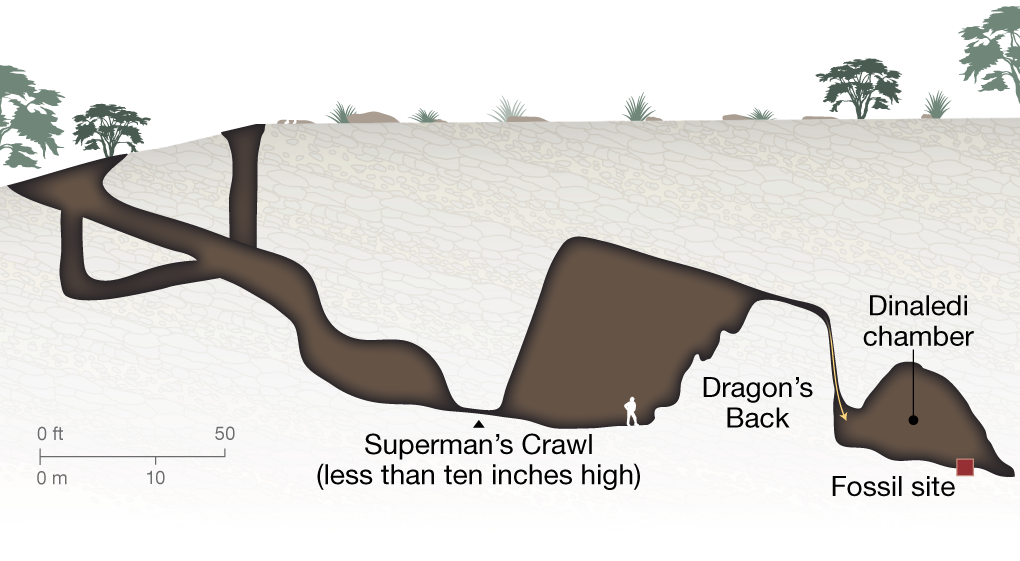Will the discovery of a new human ancestor alter our understanding of evolution?
E
Deep inside a South African cave, scientists have made an incredible discovery. They have found a brand new species of hominin, which has been named Homo Naledi, in one of the greatest fossil findings of the past 50 years. This new branch of our ever evolving family tree showed enough similarity with modern humans to be added to our genus (Homo), and is thought to be anywhere between 20,000 and two million years old.
An incredible 1,500 separate bones have been uncovered, belonging to at least 15 different bodies according to the scientists who made the discovery. It is not yet clear how this set of bodies, which ranges from juveniles to the elderly, ended up buried deep in a cave. There are a number of plausible theories; some believe that this cave could have been used as a burial site whilst others have envisaged a rather more traumatic scene, in which the early humans became trapped and slowly starved to death.

The fossilised bones were found in a chamber named Dinaledi, accessed only by a thin crack in the cave wall. It seems likely that the bodies were dropped in from above, but there could be another explanation that scientists hope to discover as they continue their research. The large majority of the fossils that have been recovered so far have all come from a tiny pit only 0.48 square metres in size.
It seems inevitable that many more fossils will be uncovered as further digging continues in the cave. Who knows what scientists will be able to discover, there could be more than one new ancestor lurking in the cave’s depths.


Post a Comment